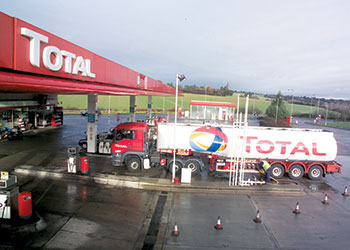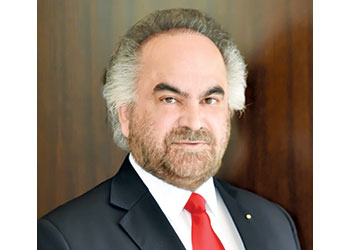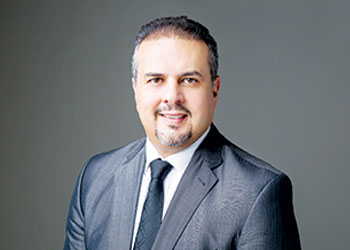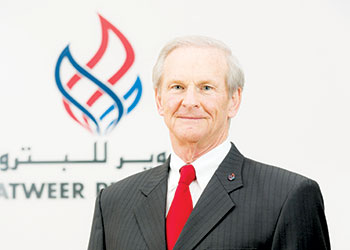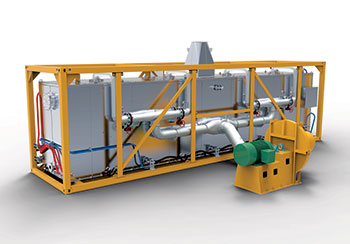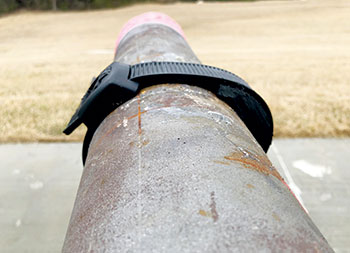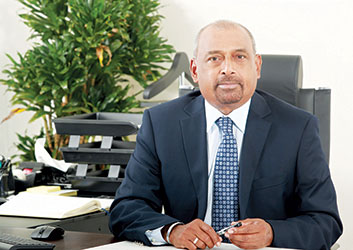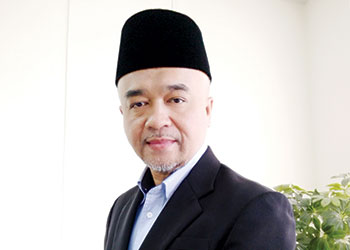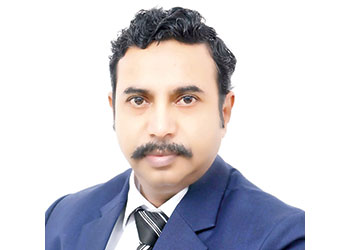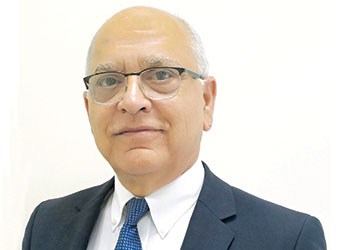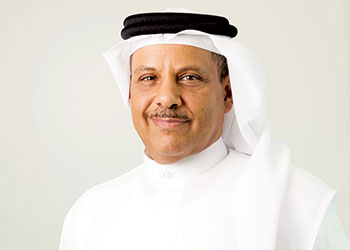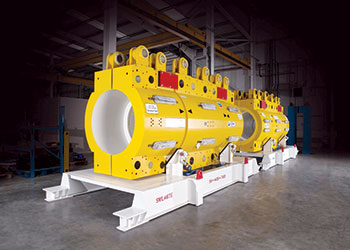
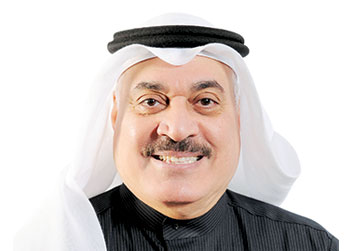 Sheikh Mohamed ... year of achievements
Sheikh Mohamed ... year of achievements
The company successfully completed and commissioned its Central Gas Plant CGP-III project with a capacity of 350 mmscfd (million standard cubic feet per day) together with all field pipelines and the Sitra storage expansion project
The Bahrain National Gas Company’s (Banagas) operational and financial results have improved in 2018 compared to the previous year leading to higher profits and revenue.
This was mainly due to the increase in crude oil prices from $54 (Average 2017) to $72 (Average 2018), which directly influenced the Company’s propane, butane and naphtha prices, says Dr Sheikh Mohamed Bin Khalifa Al-Khalifa, Chief Executive, Banagas, in an exclusive interview with OGN.
The Company successfully managed to produce a total of 4 million barrels of product, 13 per cent higher than the previous year due to the commissioning of the new gas processing facility (Train-III) in November 2018.
"In addition we have managed through proper and efficient plant operations to reduce unplanned plant downtimes, while achieving over 4 million man-hours without a Lost Time Accident. In so doing, our sales turnover reached $203 million and we were able to successfully reverse projected losses into a net profit for the year," says Dr Sheikh Mohamed.
The 2018 total production of Train I, II and partially III (2 months) is 1,628,388 bbls of propane, 1,613,272 bbls of butane and 1,963,848 bbls of naphtha, he says.
The new Central Gas Plant (CGP-III) project with nameplate capacity of 350 mmscfd (million standard cubic feet per day) was successfully completed and commissioned on time together with all field pipelines and Sitra storage expansion project. Both projects were handed over on schedule to the Company in November 2018.
The total construction cost of the new gas processing facility and supporting facilities was approximately $645 million, financed by a combination of debt financing and a shareholder loan from nogaholding, he says.
 |
Banagas after expansion |
Excerpts from the interview:
What is your market outlook for 2019? What are the major challenges that you will be facing over the next few years?
In 2018 oil prices averaged $72/bbl which was the highest average since 2014 (Average $44). Oil price forecasts depend on the interaction between supply and demand for oil on international markets. Based on the US Energy Information Agency oil prices should average $70/bbl in 2019. Among the most important supply-side factors are the US shale oil production, US crude Oil stocks and Opec oil supply. The comforting news is that Opec oil production cuts will be extended further in 2019 to stabilise prices during the year.
We at Banagas still think that the market is facing difficulties even with such moderate product price gains. The Company responded by reducing capital spending with aggressive tight budget reductions without compromising on production and safety of our employees and plant operations. Despite the unstable market condition, the Company will significantly continue its turnaround inspections to minimise the frequency of shutdowns and maintain production at optimum levels.
 |
Banagas after expansion |
As per market projections, we expect our product prices to moderately improve in 2019. However, that might not be sufficient to counter the many challenges the Company faced in 2018. These include an escalation in the price paid for gas and utilities, the need to continue funding the significant capital expenditure needed to modernise our plant facilities and the resources necessary to maintain the Company’s excellent record in Health, Safety and Environment.
The biggest challenge that Banagas faced in 2018 was the successful commissioning of the Bahrain Gas Plant Project with at a name plate capacity of 350 mmscfd, which is double that of current processing capacity as well as the expansion of the storage facilities together with all necessary supporting utilities and pipelines. The project was completed on time, on budget and on high international quality standards.
The total construction cost of the new gas processing facility and supporting facilities was approximately $645 million, financed by a combination of debt financing and a shareholder loan from nogaholding.
Banagas has significantly increased its contribution to the national economy as well as the employment market by providing more than 100 additional job places for Bahraini nationals.
 |
Sheikh Mohamed with the RoSPA safety award |
What are the highlights of Banagas’s phase 2 expansion? What all new units have been added?
The new Central Gas Plant (CGP-III) project with nameplate capacity of 350 mmscfd was successfully completed and commissioned on time together with all field pipelines and Sitra storage expansion project. Both projects were handed over on schedule to the Company in November 2018.
The plant is equipped with Mercury Guard Bed, acid gas removal unit designed with BASF’s MDEA-based solvent, Molecular Sieve dehydration unit, natural gas liquids (NGL) recovery unit designed based on Ortloff’s SCORE Technology.
The major equipment in the plant is the residue gas compressor fabricated by Siemens, Germany, the turbo expander by Cryostar, France, and the major static equipment by Wooyang HC, Korea. Wooyang also fabricated the amine absorber/regenerator, de-ethaniser, LPG splitter and de-propaniser. The plant is also equipped with a Waste Heat Recovery Unit to reduce fuel gas consumption by 60 per cent of the total heat requirement in the plant by capturing heat from gas turbine flue gas.
For the Sitra storage expansion project, the storage tanks were made by Felguera IHI, Spain; propane compressors by Mitsui Engg & Shipbuilding Company, Japan; propane and butane pump by Weir Gabbioneta, Italy; instrument air (IA) compressors and dryer units by Gardner Denver, South Korea; flare system by John Zink Hamworthy Combustion, Italy and fire water pumps by SPP, UK.
 |
The Banagas team poses for a photograph |
What impact will phase 2 expansion have on Bahrain’s gas sector?
There is no impact on Bahrain’s gas sector after the startup of Central Gas Plant new train (CGP-III), as out of the total 650 mmscfd associated gas produced by Tatweer Petroleum (TP), 300 mmscfd of associated gas is processed at CGP-I/II and the residue gas remaining after the extraction of propane, butane and naphtha is routed to the gas network. The remaining 350 mmscfd associated gas was being previously re-injected into the reservoir for pressure maintenance without processing. However, after the start-up of CGP-III and the increase in processing capacity, the remaining associated gas is compressed and routed first to CGP-III for processing to recover propane, butane and naphtha then to the Tatweer Petroleum compressors for re-injection.
Since the expansion is moving forward in anticipation of long-term supply of gas, what plans are in place to ensure adequate gas supply?
According to forecast provided by Tatweer Petroleum associated gas from the Bahrain oil field will be available even after 2029.
What were some other new projects/contracts signed during the year? Please give details.
• Completed the project for replacement of GE Frame-3 Gas Turbine Modules, Control Systems, starting system VFD, station electrical MCC and local control from Penumatic to Electronic at Compressor Station No. 3;
• Completed replacement of all the three 11KV cables from Abu-aish primary are connected to Banagas intake. Existing 4MVA transformers A and B were connected to new Banagas 11kV Switchgear and commissioned;
 |
Storage tanks |
• 204KT-001: Exchange of gas generator and power turbine assemblies have been uprated with model (TB5400). Also, in both Ruston Gas turbines (4K1 and 4K2) the gas starting system have been upgraded with VFD and electrical motor based starting system in Q1 2018;
• Installed and commissioned two new UPS systems for CGP-II and CGP-III plants in;
• Awarded Long Term Service Agreement (LTP) to Siemens for CS-7 and CS-9 gas Turbines;
• Completed study for on-bottom stability of products transfer pipelines;
• Completed Personal Exposure Assessment at Central Gas Plants;
• Completed installation and commissioning of water spray system for propane condenser at the Central Gas Plant-I;
• Completed relocation of glycol regeneration unit still column vent at Compressor Station 3;
• Awarded contract for establishment of Energy Management System;
• Awarded EPC contract for repair of submarine product transfer pipelines;
• Successfully completed T&I Shutdown works on the following Compressor Stations 1, 3 and 6;
• Construction of new landfill area as part of waste management system;
• Construction of new car park a south side started and in progress;
• Construction of Head Office extension in progress; and
• Build Operate Transfer (BOT) Contract agreement signed for installation of Solar system at H/O car park.
What is your gas production and consumption forecast for the next years for Bahrain?
The estimated average production from CGP-I/II for the next 5 years will be:
Propane : 3747 bpd
Butane : 3770 bpd
Naphtha : 4664 bpd
Fuel gas consumption by CGP-I/II will be about 35 mmscfd.
The estimated average production from CGP-III for the next 5 years expected to be:
Propane : 2844 bpd
Butane : 2402 bpd
Naphtha : 4698 bpd
Fuel gas consumption by CGP-III will be about 8.5 mmscfd.
What national, regional and international recognition has Banagas received during the last year? How does Banagas ensure quality in its operations? What have been your achievements in this regards?
HSE awards received by Banagas in 2018:
• "Industry Sector Winner Award (Oil & Gas Industry)" from the Royal Society for the Prevention of Accidents (RoSPA) – UK;
• "International Safety Award with Merit" from British Safety Council (BSC) – UK;
• "The company was recommended for continued OHSAS 18001:2007 certification and upgradation to ISO 14001:2015 from Bureau Veritas Certification (BVC).";
• GPA First Place Safety Award;
• GPA Environmental Excellence Award;
How does Banagas ensure quality in its operations?
Banagas follows all international standards in its operations and it has been benchmarked by Solomon Associates and Juran Global against international companies across its activities.
In December, the company Quality Management System was audited by BSI and recommended for continued ISO 9001 - 2015 certification. Based on ISO 9000 family of quality management systems standards, Banagas developed comprehensive Quality Policy and Quality Management Plan which is designed to help Banagas to ensure that they meet the needs of customers and other stakeholders while meeting statutory and regulatory requirements related to LPG production.
How is Banagas addressing environmental concerns associated with gas production?
Banagas addresses environmental concerns associated with gas production as follows:
• Prevention or reduction of environment concerns in context to our operations are integrated with corporate strategic planning and aligned to annual business plan objectives;
• Sustainability continues to be a fundamental for our Corporate Strategy and it emphasises in particular the protection of environment by striving to achieve "no venting, no flaring";
• Regularly reporting Greenhouse Gas emissions to the National Oil & Gas Authority (Noga).
• Regularly reporting flue gas emissions to the Supreme Council of Environment (SCE);
• Empowerment of existing SHE Policy and management systems;
• Strictly complying with ISO 14001 (Environment Management System) requirements;
• Bahrain Environment regulations and standards are completely complied with in the design of all our new facilities;
• Identification of potential environmental aspects and establishment of suitable operational controls is integrated into Management of Change system, which controls all process changes; and
• As part of our obligation towards protecting the surrounding environment, actions agreed under 5 years Environment Compliance Plan signed between Banagas and Bahrain’s Supreme Council for the Environment is being timely implemented.
As part of our commitment to continually improve company’s environmental performance the following projects are being under taken:
• An ambitious project to retrofit existing gas starting motor powered by high pressure gas with high efficient electrical motor controlled by variable speed drive is being undertaken since 2017 to minimise venting of fuel gas during start-ups. In 2017, two retrofits completed and the remaining retrofits planned for completion by 2022;
• A Lube Oil Mist Eliminator has been installed and successfully commissioned at Compressor Station - 6 to minimise oil vapor emissions to the atmosphere;
• Replaced all Mercury Vapour type street and CCTV light are changed to LED type in CGP-I and CGP-II, as a part of energy conservation and environmental improvements; and
• Successfully organised Safety, Health, and Environment Week on the theme "Save Paper, Save Environment".







































































